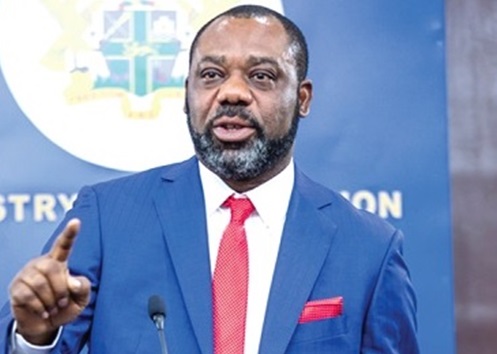
Local content confab opens - Energy Minister calls for deeper collaboration
The Local Content Conference and Exhibition has been opened in the Western Regional capital, Takoradi, with a call on stakeholders in the petroleum upstream sector to collaborate more among themselves to help realise the agenda to promote local participation in the oil and gas industry.
Opening the exhibition yesterday, the Minister of Energy, Dr Matthew Opoku Prempeh, said as an emerging oil producer, Ghana could only achieve success through cooperation.
“There is no disagreement between us in pursuit of shared objectives; only a balance of interests of all stakeholders can lead to success of all parties.
“I think that our 10 years experience of local content implementation shows that we can achieve great success through cooperation,” Dr Prempeh said.
Conference
Under the auspices of the Petroleum Commission, the Local Content Conference and Exhibition is organised each year to, among others, deliberate on issues affecting upstream petroleum operations in Ghana and its derivative, local content.
The conference, which brings together international oil companies (IOCs), international service companies, indigenous Ghanaian companies (IGCs), is on the theme: “Ten years of Local Content in Ghana’s Upstream Petroleum Industry; Achievements, Challenges and Prospects”.
This year’s conference, starting from Tuesday, November 21 to Friday, November 24, marks 10 years since the Petroleum (Local Content and Local Participation) Regulations, 2013 (L.I. 2204) came into force.
More than 1,000 participants from Ghana, Nigeria, the Gambia, Uganda, Angola, Senegal and Trinidad & Tobago and Europe, among others, are participating in the conference.
The Graphic Communications Group Ltd is the media partner of the event.
Strides
The energy minister said since the local content regulation came into force, about 20 per cent of value of contracts had been awarded to Ghanaian companies.
Dr Prempeh added that Springfield, an indigenous Ghanaian exploration and production (E&P) company, drilled and successfully discovered in deepwaters, the Afina-1X in 2019.
While commending that feat, Dr Prempeh said it demonstrated the increasing capacity of Ghanaians to take charge of the exploitation of the country’s hydrocarbon resources, especially in the wake of the energy transition.
“It is this success, among others, that we are celebrating, 10 years after the passage of our local content regulations,” he said.
Dr Prempeh said through the concerted efforts of government and the Jubilee partners, there had been an addition of 30,000 barrels of oil per day (bopd) to the country’s production profile aside from the Eban and Akoma discoveries, contributing immensely to the country’s gas potential with the increase in the proven gas reserves.
The approval of the Pecan Field Plan of Development, the energy minister mentioned, would also add to the stream of opportunities available to indigenous Ghanaian companies with expected in-country fabrication of over 3,000 tonnes of FPSO top side refurbishments, and subsea installations, stressing that all the opportunities for the project would be made available to companies operating in the country.
“I have charged the Petroleum Commission to ensure that the contract opportunities in current and future developments are spread among all capable Ghanaian companies and competent Ghanaian professionals,” Dr Prempeh added.
Platform
For his part, the Chief Executive Officer (CEO) of the Petroleum Commission, Egbert Faibille Jnr, said the commission intended to use the conference to provide a unique platform for all stakeholders in the upstream petroleum sector to interact, network and provide solutions to advance local content development in the country.
He said the commission, together with the various stakeholders, would take stock of activities over the past years and acknowledge achievements and challenges with the aim of recalibrating to achieve more strides.
“We will also identify our challenges and come up with ideas and strategies to address such challenges, and then identify the prospects to harness for the mutual benefit of all stakeholders,” he said.

